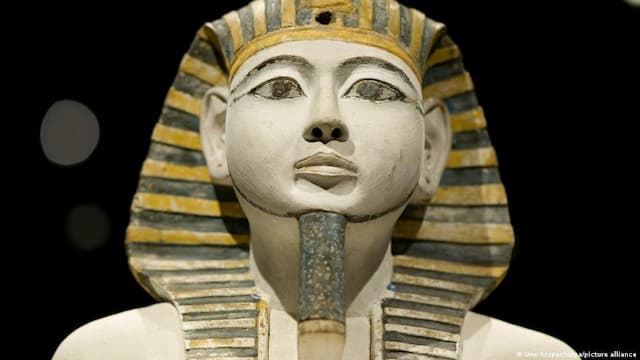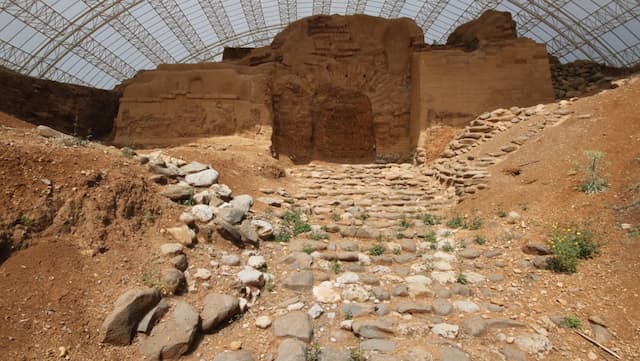A Lesson in Leadership and Confrontation (Matthew 15:1-20)

When to confront? When to step away? What can we learn Jesus’ responses to other leaders in his community?
What is it that isolates us from each other? I don’t mean Covid, though that has certainly contributed to feeling cut off from each other in recent years. What are the things that drive wedges between us, leaving us feeling withdrawn and distant?
I’m trying to learn from how Jesus related to people. He often taught the priority of sorting things out when we fall out with our sisters and brothers. Other times the disciples were bewildered to see Jesus giving up on community leaders in the rough and tumble of Galilean life without reconciling. His responses contain insights I need for leadership and relationship.
The event
There was this moment when Pharisees and Torah scholars came up from Jerusalem to support the local leaders in undermining Jesus. It didn’t take them long to find fault. Jesus had provided food for 5000 people in the wilderness. None of them had washed their hands. Who knows what kind of uncleanness they swallowed out there? (Matthew 14:15-21)
The Pharisees were the spiritually-minded group, so bringing an evil spirit into your body was a real concern. It was a big enough deal that the elders of Israel had set the cultural requirement of always washing off any physical or spiritual contamination before introducing anything into your body (15:1-2).
Their goal was to undermine Jesus, portraying him as a leader who is likely to bring you harm because he didn’t follow the cultural norms designed to keep you safe. Instead of defending himself, Jesus accuses them of doing worse. He gives an example where their traditions teach people to break not human rules but God’s Law (15:3-9).
And that’s where Jesus leaves them. He makes no attempt to resolve the dispute. Their rules are not about keeping people safe, but keeping people controlled. Rules benefit rulers.
So, Jesus turns away from the leaders, focusing his efforts on freeing the people from the fear designed to dominate them. He redirects them to be concerned about what comes out of them, not what goes into them (15:10-11).
The issue
The disciples are so shocked that Jesus made no attempt to resolve the rift between himself and the Pharisees. They check to see if he realizes his response only made the fracture worse (15:12).
Jesus responds with two stories that make it clear he is aware of the division but does not plan to resolve it:
Matthew 15:12-14
12 Then the disciples came up to tell him, “You do realize that when the Pharisees heard what you said, they fell out with you?”
13 In response, he said, “All the plants that my heavenly Father did not plant will be torn out. 14 Let them go. They are blind leaders. And when the blind lead the blind, they both fall in a hole.”
Our translations generally say the Pharisees were offended. That’s not quite strong enough. Skandalizō was a metaphor for tripping someone up, or setting a trap to bring them down. You’ve see it when you watch a commentator interview a politician or a prosecutor question a defendant.
The disciples’ point is that the Pharisees feel that Jesus publicly dishonoured their authority, bringing them down in the eyes of the crowd. He failed to give these visiting scholars the honour they’re due — a big deal in an honour / shame culture.
Jesus knew. The law he accused them of breaking was the most basic honour / shame commandment: Honour your father and your mother. For good measure, he includes the flip-side: the capital crime of bringing shame on parents (15:4, quoting Exodus 20:12; 21:17).
The point is that parents are an authority authorized by God. But perhaps these critics are not as God-authorized as they claim. They teach children how to avoid their God-given responsibility to their parents, so that they themselves can have the family’s money instead (15:5-9).
Jesus doesn’t say it, but there is a Son with God-authorized authority in the midst whom they dishonour. The real scandal is that they are trying to bring him down.
The response
Jesus makes no effort to repair relationship with them after this feisty exchange. That’s what the disciples find strange. Why doesn’t Jesus do this?
Two answers:
#1: It’s not my garden (15:13).
Leadership of the earth belongs to God. If God has appointed Jesus as leader, their attempt to bring him down will not succeed. If others have set themselves up as leaders, God is the one who will bring them down.
The irony of the cross is that the one they put down God exalts as the chief cornerstone of his redemptive project, without any effort from him to crush them. He knows he cannot persuade them that he is God’s anointed leader, so there is no way to settle their differences. It’s God’s garden, and God has not authorized the plants to uproot each other (13:29).
#2 My concern is those who follow them (15:14).
Blind leaders who cannot be led must be dismissed to go their own way. The tragedy is that those who blindly follow these blind leaders will fall with them.
And that’s why Jesus focused his efforts on releasing people from their fear tactics. There’s an inevitability — even an ironic justice — in the blind leaders falling in a heap. But he could try to open the eyes of the crowd so they don’t fall with them.
The eye-opener
Even his own disciples have been so focused on the personal issues that they could not hear the teaching Jesus gave. Only when he has dealt with the relational matters can they begin to consider his message (15:15).
Jesus responds with humour, asking if they need a lesson in basic biology (15:16-17). Even if you eat something that wasn’t great, your body has a way of getting rid of it. It’s toilet humour, but it perfectly sends up the spirituality of the Pharisees with their fear of introducing something harmful that you may not be able to get rid of if you eat with contamination on your hands.
Jesus redirects the people’s concerns from external evil to internal. We don’t need to live in fear of evil spirits around us. We need to be aware of evil rising from within us, aware of the thoughts and intentions of our own heart.
And how do we know what’s wrong within? Well, it tends to come out of our mouth as words that poison our relationships (murders), with unfaithfulness (adulteries) or using people and discarding them (sexual immoralities), taking from them (robberies), misrepresenting them (perjuries), demeaning people and God (defamations).
These are the sorts of things that contaminate us and wreck our relationships. Fear of contamination from outside spirits is a distraction designed to bend our relationships around the people who make the rules (15:19-20).
Conclusion
The last item of Jesus’ list returns us to the honour / dishonour issue that triggered this conversation. They do not recognize Jesus as the Son with the authority of the Father, so they will treat his claims as defamation against God (Matthew 26:65).
That’s a conflict Jesus cannot resolve. He bends over backwards to reconcile and include those who were often excluded, but there is no way to create harmony with those who claim to be in power and are bent on bringing him down. All he can do is try to open the eyes of their blind followers, so they don’t fall with them.
The text
Matthew 15:1-20 (my translation compare NIV)
1 Then Pharisees and Bible scholars from Jerusalem approached Jesus saying, 2 “Why is it that your followers contravene the cultural values of our elders? For they do not wash their hands when they eat.”
3 In reply he said, “Why is it that you contravene the command of God with your cultural values? 4 For God said, ‘Honour your father and your mother’ [Ex 20:12] and ‘Put to death the one who reviles father or mother.’ [Ex 21:17] 5 But you say if someone tells their father or their mother, ‘The help you would have received from me, I’m giving as an offering,’ 6 they need not honour their parent. And so you overturn God’s decree with your cultural values. 7 You play actors! Isaiah was right about you when he said, 8 ‘This people honour me with their lips, but their heart stays far away from me. 9 They perform my rituals meaninglessly, teaching instructions that are human commands.’” [Isa 29:13]
10 Calling out to the crowd, he said to them, “Listen, and get this. 11 It’s not what goes into the mouth that defiles a person; what comes out of the mouth, that’s what defiles a person.” 12 Then the disciples came up to tell him, “You do realize that when the Pharisees heard what you said, they fell out with you?”
13 In response, he said, “All the plants that my heavenly Father did not plant will be torn out. 14 Let them go. They are blind leaders. And when the blind lead the blind, they both fall in a hole.”
15 In response, Peter said to him, “Explain to us how the story relates.”
16 He said, “You still don’t get it? 17 Don’t you understand that everything that goes into the mouth makes it way into the gut and ends up excreted in the toilet? 18 But what comes out of the mouth proceeds from the heart and that’s what defiles a person. 19 For out of the heart rises the rationale for evil: murders, adulteries, sexual immoralities, robberies, perjuries, defamations. 20 These are the things that defile a person. Eating with unwashed hands does not defile a person.”
What others are saying
R. T. France, The Gospel of Matthew, NICNT (Grand Rapids, MI: Eerdmans, 2007), 574–575:
This is the last substantial episode of Jesus’ public ministry in Galilee … After this dialogue the breach between Jesus and the scribal establishment is irreparable.
The question of ritual purity has arisen in various ways already … The present discussion, therefore, though introduced by what seems to us a relatively trivial objection, went to the heart of Jesus’ ministry, and the following pericopes will illustrate more fully Jesus’ willingness to transcend the barriers of Jewish “purity” as he travels in non-Jewish territory, meets with a Canaanite woman and expels her daughter’s “unclean” spirit and goes on to share Israel’s bread with the Gentile “dogs.” His radical rewriting of the concept of purity here in v. 11 thus fits into a developing motif of his ministry.
Chrysostom, The Gospel of Matthew, Homily 54.1 (around AD 400):
The disciples were saying these things not only because they felt pain on behalf of the Pharisees but also because they themselves were a little confused. But since they did not dare to say this out of concern for their own confusion, they hoped to learn further by listening to Jesus’ own elaboration of this issue. To show that this is so, listen to what is said after these things by Peter, who was hotheaded and everywhere arriving before the rest. He says, “Explain this parable to us.” By this he reveals the confusion in his soul. He does not dare to say openly, “I take offense at this,” but he expects that he will be released from his confusion by the interpretation of the parable. So he too was rebuked.
Related posts
- Freed, or in fear? (Mt 15:1-9)
- Jesus’ relational intelligence (Mt 15:10-14)
- What the heart speaks (Mt 15:15-20)
- How far do you push for reconciliation? (Mt 18:15-17)
- Leadership is supporting people, not social climbing (Mt 23:1-12)
- No place for the devil (Eph 4:27)
Seeking to understand Jesus in the terms he chose to describe himself: son of man (his identity), and kingdom of God (his mission). Riverview Church, Perth, Western Australia
View all posts by Allen Browne











